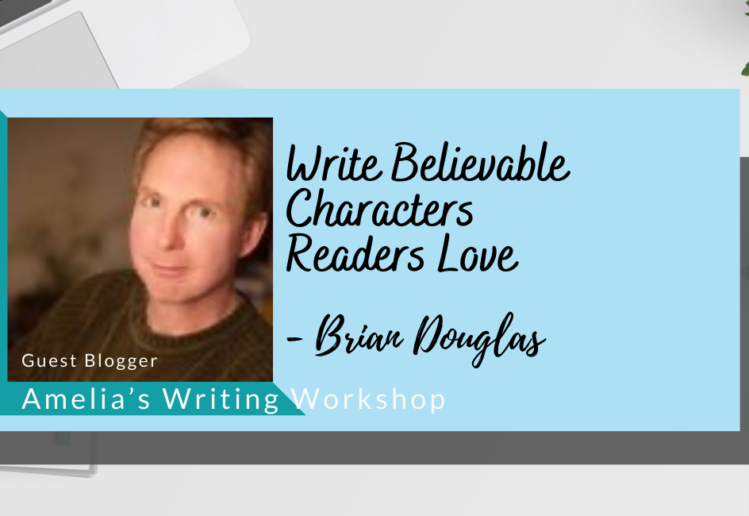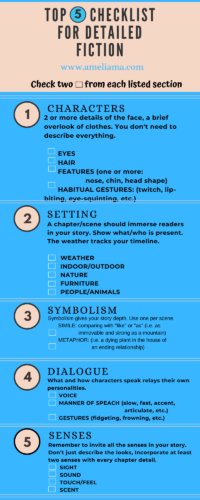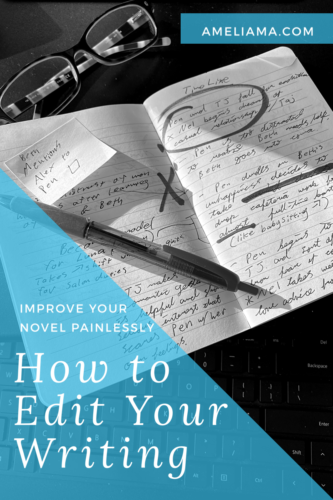Guest Blog by Brian Douglas
Brian Douglas is a fiction author who shares tips on creating believable characters. Read on as Brian depicts the varying facets of making characters who readers want in their novels.
Creating Believable Characters
‘Kristin O’Neal was a sexy strawberry blond with the body of a Vanity Fair model. Her preference was baggy board-shorts over camel-toe tights. She had Ariana Grande dimples and Betty Davis eyes, and could put a bullet through the head of her target at 300 hundred yards, faster than I could pop the tab on my Bud Lite.’

By describing the protagonist in such detail I’ve taken something valuable from the reader. I have robbed them from using their imagination.
Let’s try that again. ‘Her strawberry blond curls bounced momentarily from her shoulders as Kristin O’Neal put a bullet through the head of her target.’
That’s enough. The reader can fill in the rest. As best-selling author, Jerry Jenkins says, resist the urge to explain. Allow the reader to develop their own image of how they would like their protagonist to look. (And it is their protagonist. Once they pick up our book it’s theirs. The writer only builds the springboard to launch the reader’s powers of imagination.)
I am currently working on my third novel; a murder mystery, about a dozen people who go missing in a small Canadian town. In the novel, I scarcely describe the appearance of anycharacter, and I feel no compulsion to do so. My antagonist is described in one word – ‘slimy’. The characters words, actions and personalities are sufficient for the reader to decide what they should look like.
Believable Characterization
There are few things as important to writing fiction than truth telling. And since fiction is all about untruth – insomuch as the truths we tell are made up – the way we create that untruth must feel very real.
Without believable characters our narratives have no pulse. The authenticity of our actors is the heartbeat of every story. This is characterization. It is established through several attributes:
- The physical description of our characters
- The things they do
- How they react to events they encounter
- How they speak
- What they say (By the way, how our characters speak and what they say are not the same. Your character may speak with a southern drawl or stutter, but the things hesays may be profoundly wise or ridiculously stupid.)
Believable Looks
Since this is where we began, Let’s continue with what our characters look like. For me this often changes as the story unfolds. The reason is simple: until the character develops a life of her own, I cannot know what she looks like. Have you ever read a book whose author has saved his description of an important character until well into the novel? You get to the description and somehow it falls short. You’ve already created a very satisfactory image of the character, and along comes the author and screws it all up. It’s the very reason most readers will lament, ‘the book was far better than the movie’.
Some writers know their characters completely before they ever to set pen to paper. I wish that were true for me. It would save a great deal of re-writing. However, I find it often takes a lot of writing before my characters take on a life of their own, and that is where the fun begins and the work stops. When I get to that point, I know exactly what she looks like; from the color of nail polish she prefers, to the type of earrings she wears to the office on Monday, Wednesday and Friday. I probably won’t tell the reader, because that may interfere with his image, but I know, and that has become a defining aspect of her character.
Believable Actions
The things our character does reflects who he is. They establish his moral compass; they set his boundaries and determine his sense of purpose – the why of his existence. Not just why does he exist in the story, but rather in the grander scheme of life. “Those who have a ‘why’ to live, can bear with almost any ‘how’” said Viktor Frankl.
Remember ‘The Princess Bride’? “My name is Inigo Montoya, you killed my father, prepare to die.” Much more than comic relief is expressed through this meme. Early in the story we are moved, not so much by his words, but by his sense of purpose. Inigo has a single-fold mission: to avenge his father’s death and defeat Prince Humperdink. By clearly defining your character’s purpose he is brought to life on the page.
The believability of your story comes through how your protagonist reacts to the events she encounters. Your antagonist has plunged your hero into chaos; taken her through untold hardships. And just when things couldn’t possibly get any worse, they do. This is an important element of good fiction – making the worst possible scenario even worse. But what brings realism to the story is how authentically our hero climbs from the depths of Hades, and becomes stronger, wiser and kinder as a result of their suffering. In a great novel, the lessons that our hero has learned will make the reader stronger, wiser and kinder as well.
Believable Speech
How our characters speak, further distinguishes their believability. I am not referring to dialogue,(that is another topic altogether). I refer rather to everything from slang, to dialects, to stutters and lisps, but more importantly, word choice. If your hero is a rocket scientist but articulates herself like the fourth-grade class clown, your reader is going to have a difficult time believing she could have ever earned a PhD, let alone become the chief engineer for SpaceX. And conversely, if you’re writing a YA novel about climate change, and your seventh-grade protagonist expounds the intricacies of greenhouse gas emissions with more circumlocution than a NASA climatologist, you’ll probably lose your reader. In short, make sure the words your characters use fit with who they are. Perhaps nothing credits or discredits our writing more than what our characters say.
When my characters come to life, the way they look, the things they say and do, and the way they respond to tragedy and triumph, are no different than real human beings. When this happens, I no longer have to give them words. They tell me what they are saying. The characters intuitively know how to react to the curve balls thrown at them, and they know exactly how to express themselves in a way that the reader understands and believes. They are believable because, while they may only truly live in my head, they are also alive in my heart and from there it’s a short step to the page.
About Brian Douglas
Brian Douglas is a writer from Vancouver British Columbia, Canada. He holds a Master of Arts degree with a double major in clinical psychology and pastoral leadership. He is currently working on his third novel, ‘Torrent’, a murder-mystery. Brian is a member of the Board of Directors for the Canadian Authors Association. However, his greatest joy is not found on the page rather in days spent with his grandson.
Brian Douglas Website
Get a Detail Checklist

Track your characters, settings, and thematic details with a free infographic by Amelia’s Writing Workshop: Detail Checklist
Be My Next Guest!
Gain new readers by sharing one of your blogs on Amelia’s Writing Workshop. If you have creative writing or marketing tips for writers, share them with the writing community, here.




[…] historical periods thought very differently from today’s readers. Your reader needs to be able to relate to your characters. If they sound too outdated, your readers may become distracted. Your dialogue or dialect should […]
Thank you Brian. I have always avoided vivid descriptions for exactly the reasons you describe. I do have a problem because I sometimes need them to have a certain trait later in the novel. My second novel I needed my protagonist to be brunette. I hope I didn’t destroy the images because I brought this up. Thanks for the tips And thanks Amelia for inviting Brian
Spend today laughing
Finding the right balance of descriptions is tricky, but that balance can make all the difference with your novel. I’m glad you found Brian’s blog insightful. Please, share with others.
Thank you for the comment!
Finding the right balance of descriptions is tricky, but that balance can make all the difference with your novel. I’m glad you found Brian’s blog insightful. Please, share with others.
Thank you for the comment!